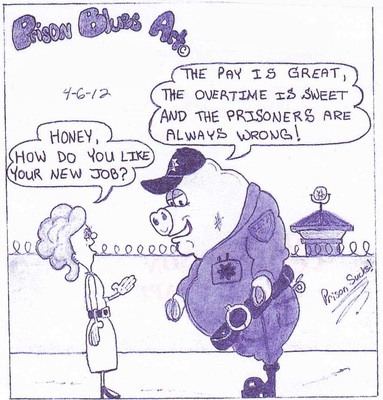
Reforming the Reforms

The main problem with the grievance process is at the informal level, when a prisoner has to get two responses from staff on a CDCR 22 form. Unless you’re challenging something out of the Title 15, the CDCR 22 must be filled out. That’s very hard to do, considering most staff just throw them away. The CDCR 22 is designed so that officers can sign it at the door, verifying that it was sent, and give the prisoner a receipt. However, even with the receipt, if the prisoner does not have two staff responses, the appeals coordinator will reject the grievance. The Title 15 Section 3084.3 (b), (c), and Section 3086 (e)(2) allow them to do that.
What we should do is file a grievance on those three Title 15 sections I just listed, requesting that they be changed to state: “One or two signed CDCR 22 receipts requesting remedy or supporting documents that also show that the staff member to whom the CDCR 22 was mailed did not respond within the time limits detailed in Section 3086 (f)(4) and (h) shall be receipted in lieu of requested supporting documents pursuant to Section 3084.3.” The legal argument for this is the 14th Amendment (access to courts) and Title 15 Section 3084.1 (right to appeal).
Just jump through the hoops until the grievance is exhausted. Then, write the Prison Law Office and the ACLU and tell them you’d like their help in filing a §1983 suit. Since it’s a major issue, a prisoner advocate group will probably pick it up, and the petition distributed by MIM(Prisons) could be used as evidence.
Another good grievance would challenge the Title 15 Section 3123 (b), which gives CDCR the power to limit the law library hours to whatever it wants. Here at Kern Valley State Prison, the law library is open 2 days a week. The Title 15 should be amended to say: “Each law library shall remain open five days a week, for not less than six hours per day.” The 14th Amendment should also be cited for that grievance.
MIM(Prisons) responds: CDCR Form 22 is a reform to the CDCR grievance system that was rolled out December 2010 in response to the campaign to End the High Desert State Prison Z-Unit Zoo.(1) Participants of this campaign sent petitions to CDCR administrators and legal protection groups such as the Prison Law Office and the U.S. Department of Justice. An investigation was conducted, prisoners were interviewed, and even some of their demands were met.(2)
But this contributor shows how our struggles for reforms, and even our victories, will be met with more and more red tape under the current power structure. Form 22 was supposedly designed “so that our requests may be answered in a timely fashion by COs, with a receipt. Now we have a clearer paper trail to use should K9s decide to implement their underground rules.”(1) But still, there’s nothing stopping the COs from simply throwing Form 22s away.
This contributor’s suggestion to change some of the language of Title 15 may be an improvement on the current grievance system in California. But until COs and prison administrators acquire a proletarian morality that values the well-being of all people, they will figure out ways to continue to oppress those who they deem as unworthy of basic humyn necessities, and their higher-ups will cover for them. This proletarian morality doesn’t develop from procedural changes in prison operations, no matter what documents we amend. Material conditions shape our worldview, and until the material conditions that support national oppression are abolished, the oppressors will continue to justify their sick behaviors.
While we fight for reforms to improve our current conditions, we must accept the necessity of total social change, namely the change from capitalism to socialism. Until then there will always be a trade-off; where one group gains, another loses. We must allow our own acquired proletarian morality to infect our political work and inform the orientation of all the battles we take on.








